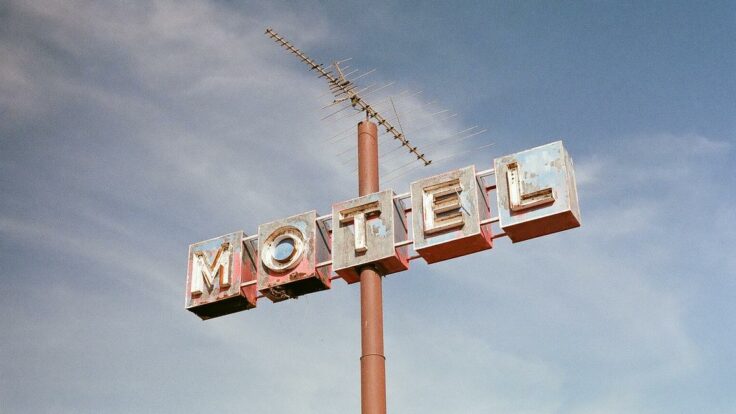 |
 |
|
Hi, and welcome back to Line Sheet. Did you have a nice weekend? Regretfully, I did not make it to Bar Marmont late on Thursday for the Brunello Cucinelli cocktails (the turnout was wild and impressive, though, because Hollywood people like Shonda Rhimes actually buy the clothes). However, I did stay up past 11 p.m. on Friday night to attend a live taping of How Long Gone at the El Rey, where I spied multiple Bottega Veneta Andiamo bags. Tonight, there’s a Burberry party at La Dolce Vita. (I’ll be there. Will you?)
A fresh reminder that Puck has acquired Retail Diary, the e-commerce and brick-and-mortar Substack. Its inimitable author, industry vet Sarah Shapiro, will be contributing to Line Sheet as our new correspondent.
Please join me in welcoming Sarah! Her writing will appear starting on Wednesday, so please send tips, pitches, and suggestions her way via SShapiro@puck.news. She cannot wait to hear from you.
Today, there’s a little something for everyone, including feedback from last week’s Condé Nast and Bottega Veneta stories, and a note about why you should be paying attention to the impending TikTok ban in the U.S. For the main event, I pay a visit to the mall to try to game out the fate of Gap Inc. and J.Crew.
🚨🚨 Programming notes: Tomorrow on Fashion People, I’m joined by the one and only Becky Malinsky. We get into the making of her Alex Mill collaboration, the prospect of Louise Trotter at Bottega Veneta, and plenty more. Listen here. I was also on the Remarkable Retail podcast with my Selling Sexy co-author, Chantal Fernandez, talking Victoria’s Secret. Find it here.
Mentioned in this issue: Gap Inc., Bob Fisher, Old Navy, Zac Posen, J. Crew, Louise Trotter, Matthieu Blazy, Bottega Veneta, Dries Van Noten, Julian Klausner, Condé Nast, Elizabeth Herbst-Brady, Roger Lynch, the (potential) TikTok ban, Gucci, Louis Vuitton, Libby Wadle, URBN, American Eagle, Olympia Gayot, Brendon Babenzien, Bandit, Converse, and many more.
|
| Three Things You Should Know… |
|
- Geez, Louise!: My Thursday scoop that current Carven designer Louise Trotter is in line to replace Matthieu Blazy at Bottega Veneta gained steam on Friday, with other publications reporting the same information, a number of them resisting the urge to credit Puck. (Be warned, Santa is watching…) Many people seem excited by this prospect: I had not one, but two top celebrity stylists send me notes endorsing Trotter, and several industry insiders expressed their elation. There is a lot of goodwill.
In other designer musical-chairs news, Dries Van Noten announced that the designer’s successor would be Julian Klausner, a young Belgian who’s been working at the Antwerp-based, Puig-owned brand since 2018. (Read Tim Blanks’s interview with him here.) For a house like Dries Van Noten, promoting from within felt like the only choice. Klausner’s appointment underscores the renewed dominance of Belgian designers, with Matthieu Blazy expected to be announced at Chanel in the coming weeks, and Pieter Mulier already stationed at Alaïa. (Then of course, there’s Raf at Prada.)
|
|
A MESSAGE FROM OUR SPONSOR
|
 |
| Iconic magazine encapsulates all things luxury, retail, design, and more. Each issue looks at the latest news, trends, and major players that are shifting culture across a wide range of industries. The seventh issue examines the intersection of fashion and technology exemplified by the designs of Iris van Herpen and astonishes readers with a sci-fi-sounding story of how Google is digitizing scents — and that’s just the aperitif. Plus, get an in-depth look at Ala Moana Center, Brookfield Place NY, the Crown Building, and Oakbrook Center. |
|
|
- Look, it’s for the best: Last week’s Condé Nast layoffs were brutal, but many of the remainders are trying to view the Elizabeth Herbst-Brady regime change as a positive. After all, Herbst-Brady essentially removed a privileged layer of Pam Drucker Mann loyalists who were never going to stick around to credibly enact her vision. This sort of intracompany generational turnover is always painful, but it’s essential to keep the business moving forward. Pam, who left in May, had some singular talents, but she was also a company lifer, and she surrounded herself with a cliquey team that had an umbilical relationship to the company’s past. Much like Roger Lynch, Herbst-Brady is an outsider unmoored to Condé tradition, for better or worse.
There’s also a chance for Herbst-Brady to now bring in new people—her people. I’m told by a source close to Condé Nast management that headcount will be relatively flat from 2024 to 2025. That sounds like self-serving math, but it does suggest that a new regime is going to operate the combined commercial and marketing side of the company. Again, not to diminish any of the hard work people did (or to puff up the many terrible people who got to keep their jobs), but this is just what managing a declining legacy publishing business looks like up close.
If you’re a Condé Nast employee who remains sad and frustrated about the situation, I suggest you listen to Puck media correspondent Dylan Byers’ recent podcast with former Hearst president Troy Young. Troy is an imperfect narrator of the upheaval in the industry, but he’s generally pretty logical about this business, and he does a good job explaining why most legacy magazine publishers failed over the past decade.
- The looming TikTok ban is not great for people who sell stuff: We’re gonna get into this topic a bit more later in the week, but let’s just say that the impending TikTok ban, which was upheld by an appeals court last week, could put a dent in the sales of many brands that have gotten a lift from shilling on the platform. The gross merchandise value of product sold on TikTok Shop is set to reach $50 billion this year, according to one oft-cited data provider. And remember, in-app shopping on TikTok only launched in September 2023. For many sellers of cheap goods, TikTok Shop has supplanted the Amazon marketplace. (It’s a sort of QVC-meets-Amazon, which helps to explain why sales ticked up so fast.) While most upmarket brands aren’t selling on TikTok, they are marketing there. If the platform is restricted, they’ll simply reallocate their paid budget elsewhere—presumably to Instagram—but either way, this isn’t great for commerce.
|
| And now, a view from the mall… |
 |
| Mall Rats |
| News, notes, fresh reporting, and some discount shopping at a series of recently refreshed historic mall brands. |
|
|
|
| Last week, former Gap Inc. C.E.O. Bob Fisher, the son of founders Don and Doris Fisher, sold about $31 million worth of stock in the company—not nothing, sure, but also a teeny, tiny fraction of Fisher’s holdings. A longtime BoD member, Bob owns more than 10 percent of the business, which currently has a market capitalization of more than $9.8 billion.
And yet, Bob wasn’t the only one to take some money off the table. Bill Fisher, Bob’s brother, the founder of Manzanita Capital (a private equity firm that owns D.S. & Durga, Diptyque, and Susanne Kaufmann, among other highbrow beauty brands), and the rest of the family members still on the board of directors, also sold shares last week—about $9.8 million worth. C.F.O. Katrina O’Connell, a 30-year veteran of the company, sold a little over $2 million. Horacio Barbeito, the C.E.O. of Old Navy, also happened to sell about $6,000 worth of stock last week. (Sounds like it was bonus time for the nanny.) Gap Inc.’s stock is currently up about 25 percent year-to-date, to $26 a share, although these transactions were completed at a slightly lower value. (The stock is still down from its most recent peak, in mid-2021, of $35 a share, but has been trending up for the last 18 months.)
Is all this a coincidence? Diversification, estate planning, etcetera, are all feasible explanations. The Fishers—not only Bob and Bill, but also their brother, John—still own nearly 35 percent of Gap Inc. through various entities (trusts, LLCs, and so forth) and have never indicated a desire to fully exit the business. Instead, like many second-generation company stewards, they appear to be managing their financial investments from an arm’s length. Yes, Bob and Bill worked at the group earlier in their careers: Bob served as interim C.E.O., and John runs the family office (Pisces) in addition to controlling the Athletics baseball team, which he is currently and ruthlessly moving from Oakland to Las Vegas. In other words, the Fishers’ primary job is being rich, and their Gap stock is merely part of their portfolio at this point.
|
|
A MESSAGE FROM OUR SPONSOR
|
 |
| Iconic magazine encapsulates all things luxury, retail, design, and more. Each issue looks at the latest news, trends, and major players that are shifting culture across a wide range of industries. The seventh issue examines the intersection of fashion and technology exemplified by the designs of Iris van Herpen and astonishes readers with a sci-fi-sounding story of how Google is digitizing scents — and that’s just the aperitif. Plus, get an in-depth look at Ala Moana Center, Brookfield Place NY, the Crown Building, and Oakbrook Center. |
|
|
| Also, the Gap’s success wasn’t exactly built on the vision of Don and Doris. When executive Mickey Drexler arrived at the company in 1983, Gap was fading fast, struggling to continue selling Levi’s to upwardly mobile Baby Boomers. (Remember, for its first decade and change in business, Gap mostly sold jeans and records—and other trendy fashion brands—not its own stuff.) Drexler got rid of the Levi’s and filled the stores with Gap-branded product, which became the uniform of ascendant Reagan-era yuppies (and wannabe yuppies). By the early ’90s, everyone was wearing it—even Janeane Garofalo’s proto-hipster Vickie Miner in 1994’s Reality Bites. Drexler conceived and launched Old Navy to combat NAFTA-driven mass-market price decreases, and transformed Banana Republic from a safari-gear store into a haven for precocious metrosexuals and people who wore black chinos. To be sure, the Fishers empowered Drexler, but he was the one running the show as kids Bob and Bill entered the business. Even after Drexler was famously fired in the early 2000s, his influence over the family and future executives has hardly waned. |
|
|
| The family’s stock sales, no matter how inconsequential, came during a week when many of my conversations centered on Gap, J.Crew, Abercrombie, Victoria’s Secret, and the handful of brands that made the American mall as we envision it. I’m not sure how many of you are actually shopping at malls these days, but the reality is that ultra-productive malls are filled with Gucci and Louis Vuitton stores, with a sprinkling of Abercrombies. (A lot of the dead malls that you hear about are truly dead—and closed years ago.)
The thing about the so-called mall brands is that, after years of bad headlines and doomsday scenarios, the ones that survived are mostly faring relatively well. Gap projected a better-than-expected November and December, causing shares to rise. Long-struggling Victoria’s Secret raised its full-year outlook. (Shares are up 80 percent this year.) Abercrombie & Fitch’s shares, while nowhere near their peak, are up 70 percent year-to-date. J.Crew is a private company and doesn’t disclose revenue figures, but walk into any store and it’s easy to see that people are buying the clothes. (In August, there were reports that the company was searching for a $400 million loan after years of dodged defaults and a bankruptcy that forced a new ownership structure. The company was able to refinance its existing loan in September—at a lower interest rate, even.)
The question, for me, is about their ceiling. Abercrombie & Fitch’s success in shifting the focus away from its heritage is clearly working with consumers, but there’s a limit to its trend-driven, fast-fashion-mimicking growth. The others are more reliant on discounting. Profits at mall brands have eroded significantly over the past several decades as discounting culture in America has all but forced retailers to continually mark down. On Sunday, December 8, Gap.com’s sale was “up to 60 percent sitewide.” Jcrew.com boasted “up to 40 percent off our newest styles.” Victoria’s Secret, a replenishment business that should theoretically rarely go on sale, was offering a 30 percent discount on all bras, its bread and butter.
There are two ways to think about discounting culture. One is to accept it, and simply factor consumer discounting expectations into the amount of product you have to sell in order to achieve certain margins. (J.Crew’s Factory business, for instance, is growing pretty rapidly as they continue to open new stores.) The problem with that way of thinking, of course, is that there are far larger volume players out there—Shein, Amazon, Uniqlo, etcetera. Analysts would prefer that these mall brands sell less, more tightly curated product while focusing on profit—the “shrink to grow” theory. If you spoke to any of these companies’ top executives, most of them would say that they are trying to do that. But it’s not easy when you also have quarterly sales goals to hit, which helps to explain why they sell Gap clothing at Costco.
|
|
|
| So, what happens to the mall now? Well, retail isn’t a crash-and-burn business. These brands will ebb and flow as long as there is someone willing to put in the money to allow them to continue. J.Crew, now backed by Kevin Ulrich’s Anchorage Capital Group, will have to sell eventually. (The Madewell I.P.O., planned pre-pandemic, sounds like a cute idea at this point.)
My guess is that J.Crew’s debt-raising exercise earlier this year was an effort to give C.E.O. Libby Wadle & Co. more time to prepare the business for a potential sale by the end of 2025. Who would want to buy it at this point, I honestly don’t know. There is a ton of goodwill for J.Crew with consumers, who love this latest brand iteration. But potential strategic buyers are fewer and farther between than ever. The fortunes of American Eagle Outfitters have turned for the worse, and I’m just not sure whether URBN—which owns Urban Outfitters and Anthropologie—is that acquisitive at the moment. A much less desirable scenario would be an Authentic Brands Group situation.
|
|
|
| As for Gap Inc., the Fishers and their board have given group C.E.O. Richard Dickson seemingly more agency than any of his predecessors since Drexler, whose legacy somehow continues to loom large 25 years after he was kicked out of the company. (Drexler was also behind J.Crew’s mid-aughts revitalization and the launch of Madewell, but he’s still most associated with the Gap.) Dickson, as I’ve written before, has restructured the business carefully and fired people who needed to be fired. Right now, everyone is chatting about Derek Yarbrough, Old Navy’s new interim C.M.O., and whether he’ll match the energy of Dickson and his creative advisor, Zac Posen, the brand’s chief creative officer.
I have no clue if he can, but I do know that people at J.Crew do not credit Yarbrough with the current look and feel of the brand. He is not the person who hired the Strokes to play at the company’s 40th anniversary party, or thought of re-creating La Côte Basque at the New York Public Library. Those ideas are very much driven by designers Olympia Gayot and Brendon Babenzien and Wadle, who have managed to shed former creative director Jenna Lyons’ sequins and pinstripes from the brand’s persona. If Yarbrough is more of a performance marketer, and less of a creative, that may actually work better given that Posen wants to control the advertising.
Anyway, it’s still unclear if Dickson’s changes are purely cosmetic or will actually have a long-term positive effect on the business. Do the Fishers still care? They must, given that their money could be put to better use elsewhere. Last week, someone who knows everyone involved imagined a scenario where the family finally spins off Old Navy—enriching stakeholders along the way—sells off Banana Republic (a perennial lost cause) and Athleta (a wasted opportunity that someone else could seize), and takes the Gap brand private. After all, Gap is the family business. Another person who knows them better reminded me that the family business is wealth management, and said it was a silly idea.
|
| What I’m Reading… and Looking at… and Listening to… and Shopping for… |
|
| On the activewear beat: Greenpoint-founded Bandit has been hyped to me as the “next Outdoor Voices,” but it wasn’t until this weekend, during a stopover in Echo Park to visit Peter Shire’s open-for-one-day studio, that I began to believe this. The still-new Echo Park Avenue running shop LSD—stands for Long Slow Distance—sells a ton of it alongside On and District Vision. (They also have a good amount of White Mountaineering and And Wander for boys who like Japan.) I’m not totally in love with it yet—the product reads very Angry Gen Z to me—but I’m going to at least try a pair of the tights. Colorful Canadian émigré John Ortved wrote about their New York City Marathon collab if you want to learn a little bit more. [NYT]
I answered Monica de La Villardière’s famous Fashion Proust Questionnaire. It was fun. (Although Monica, I’m sorry, but I can’t take credit for the puns in this email. I don’t write the headlines!) [Mon Review]
Sephora owns nearly a third of the beauty market in the U.S. Sheesh. [Fast Company]
Slow clap for this Skims collaboration with The North Face, and the campaign conceived by Vanessa Beecroft. Brilliant stuff. [Instagram]
Marina Abramovic is fascinating. She was at so many shows during Milan Fashion Week. At one of them, I asked her why, and she told me it was because she was invited. (Usually people like that have another reason.) In Miami last week, she was part of one of the few interesting brand activations: an exhibition of her new book, Nomadic Journey and Spirit of Places, staged at Inditex-owned brand Massimo Dutti’s only U.S. store. [Cultured]
If you’re wondering what type of plastic surgery people are looking for in the age of GLP-1s, the answer is mini arm lifts. [The Hollywood Reporter]
I know I said that I am only wearing Converse these days, but that was hyperbolic, and I’ll certainly make an exception for the Auralee–New Balance collab, which goes on sale December 13. [Auralee]
Bernard Arnault, François-Henri Pinault, and their families attended the reopening of the Notre Dame Cathedral. [WWD]
You should read this piece about the state of politics in France. [The New Yorker]
|
|
|
| And finally… “The problem with Art Basel is that anyone can go to it,” —Jason Stewart
Until Wednesday,
Lauren
P.S.: We use affiliate links because we are a business. We may make a couple bucks off of them.
|
|
|
|
| FOUR STORIES WE’RE TALKING ABOUT |
 |
| Art Basel FOMO |
| The most pressing insights from Miami’s annual art fair. |
| MARION MANEKER |
|
 |
| A.O.C. Uprising |
| News and notes on the generational Democratic leadership battle. |
| ABBY LIVINGSTON |
|
 |
| The Hegseth Sitch |
| Plus, the implications on other Trump appointees’ chances. |
| TARA PALMERI |
|
 |
| Hollywood P.R. Wars |
| Unraveling a once-mighty P.R. firm’s suit against defectors. |
| MATTHEW BELLONI |
|
|
|
|
|
 |
|
|
|
Need help? Review our FAQs
page or contact
us for assistance. For brand partnerships, email ads@puck.news.
|
|
You received this email because you signed up to receive emails from Puck, or as part of your Puck account associated with . To stop receiving this newsletter and/or manage all your email preferences, click here.
|
|
Puck is published by Heat Media LLC. 227 W 17th St New York, NY 10011.
|
|
|
|











